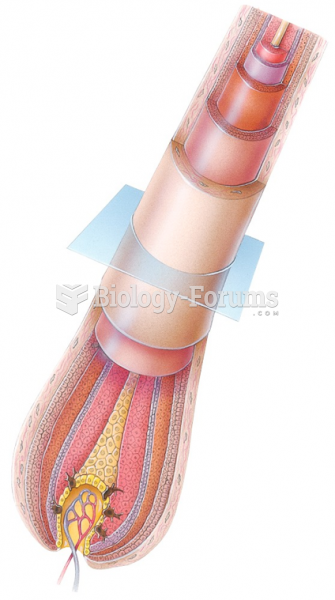|
|
|
Did you know?
Drugs are in development that may cure asthma and hay fever once and for all. They target leukotrienes, which are known to cause tightening of the air passages in the lungs and increase mucus productions in nasal passages.
Did you know?
Green tea is able to stop the scent of garlic or onion from causing bad breath.
Did you know?
Colchicine is a highly poisonous alkaloid originally extracted from a type of saffron plant that is used mainly to treat gout.
Did you know?
Medication errors are three times higher among children and infants than with adults.
Did you know?
This year, an estimated 1.4 million Americans will have a new or recurrent heart attack.







